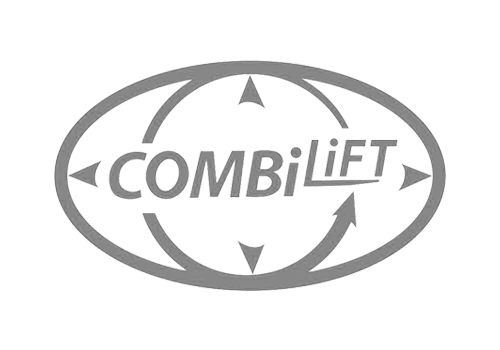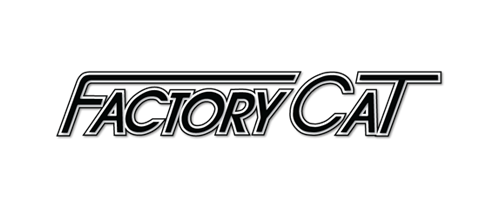
When shopping for forklift truck tires, you want to choose the ones that meet your project’s specific conditions and machine’s needs. The right set can be great functionality and offer a smooth driving experience for the operator.
This guide shows you how to select the right tires for your forklift to maintain workplace safety and productivity.
Considerations When Choosing Forklift Tires
When choosing forklift tires, consider several factors that impact functionality and efficiency:
- Application: Consider the work your forklift does and your level of usage. Does your team use it for lighter or heavier tasks? Does the forklift operate for long hours?
- Surface condition: Note the conditions in your work environment. Is it an indoor facility with smooth surfaces and protection from the elements? Is the forklift exposed to weather conditions, and does it operate on uneven terrain?
- Wheel specifications: Forklift truck tires vary depending on many factors and will be marked or unmarked and have different sizes and hardness.
The Main Types of Forklift Tires
There are two main types of forklift tires — pneumatic and cushion. Each has its benefits and is suitable for a specific work environment.
Pneumatic Forklift Tires
Pneumatic tires are traction rubber tires filled with compressed air or foam. They are more resistant to puncture but less sustainable than the alternative. A sub-type of pneumatic tires called solid pneumatic tires is a durable solution for uneven surfaces, as they are made of solid rubber that makes them resistant to puncture and longer-lasting.
Pneumatic tires are also:
- Designed to tackle uneven terrain outdoors: The hard rubber surface filled with air or foam maintains smooth navigation in rough surroundings. Solid pneumatic tires are an ideal puncture-proof solution, especially in rough terrain capable of causing punctures, such as lumber and rail yards, scrap yards and construction sites.
- Equipped with thick treads: These offer excellent traction when operating the forklift on outdoor surfaces with less friction.
- Highly durable: These tires can handle challenging projects due to their large frames and thick rubber treads.
Cushion Forklift Tires
Cushion is another type of solid forklift tire. Like solid pneumatic tires, cushion tires are made of solid rubber, with minor differences — they’re pressed onto a steel band and sit lower to the ground compared to the other types. Cushion forklift tires offer:
- Compatibility with smooth surfaces: Cushion tires are designed for smooth surface environments such as warehouses or paved ground. They have smooth and traction varieties with tough outer surfaces for ease of use on concrete floors.
- Increased flexibility: Cushion tires are smaller and sit lower on the ground to improve navigation in smaller spaces and narrow isles. They’re also fit for smaller forklift frames designed for indoor use or projects with tight corners.
- A low-budget option: Since cushion tires are smaller and feature a simple press-on design, companies find them less costly to produce, which makes them more affordable. They are also durable with proper usage and good maintenance.
Other Types of Forklift Tires
There are other types of forklift tires besides the more popular pneumatic and cushion varieties.
Polyurethane Tires
Polyurethane forklift tires are lightweight press-on tires designed for specific indoor applications that demand less usage and slower speeds, such as warehousing. They are more resistant to splitting and tearing under heavy loads but are less durable than rubber alternatives. If the application requires handling heavy loads for shorter durations or the environment is exposed to chemicals, polyurethane tires may be the best option.
Non-Marking Tires
Non-marking tires are specialty alternatives to standard forklift tires designed to improve visual appeal. Unlike other forklift tires that leave soot marks on surfaces, non-marking tires provide clean operations due to the infusion of hydrated silicas and other materials during manufacture.
How Long Do Forklift Tires Last?
Forklift tires are made for industrial use to move heavy loads, making longevity a crucial factor that will impact your operations and cost-effectiveness. While eventual replacements are inevitable, it’s important to consider the impact of life span, maintenance and downtime when choosing the type of tire that fits your needs.
The answer to the longevity of forklift tires depends on various factors such as the tire type, indoor or outdoor application, terrain, usage level and load capacity. All tires will last longer with regular quality checks and proper working conditions.
Which Tire Option Is Right for You?
The right forklift tire depends on your working conditions, budget and frame design. Before choosing a tire, confirm whether your forklift frame and wheel are designed for pneumatic tires or cushion tires. Knowing your recommended tire type allows you to select between solid and non-solid pneumatic tires or smooth and traction cushion tires. You should also note the required dimensions.
Remember that specific tire types are suited for specific conditions and tasks. Consult a professional if you’re not sure which is the best for your specific forklift or project.
When Should You Replace Forklift Tires?
Replacing forklift tires is a crucial safety precaution that ensures the well-being of everyone in the workspace. Considering thousands of forklift-related accidents occur yearly, it’s important to maintain regular inspections of forklift tires for maintenance purposes and to identify wear and tear signs. Generally, when the tire reaches 50% of the wear line or safety line indicated at the top of the tire, it’s time for replacement.
Here are other wear signs to keep in mind:
- Watch out for exposed wear rings: Some tires will have wear rings that begin to show when it’s time to replace them.
- Keep an eye on cracking: If you notice the tires splitting or see tiny pieces falling off, replace the tire as soon as possible — that’s a huge sign of damage.
- Pay attention to flat spots: Non-round spots and uneven wear on your tire indicate the time for a replacement.
- Keep an eye on comfortability: Worn tires absorb less shock and put pressure on operators. If you notice increased discomfort, call for an inspection.
Get the Right Forklift Tires for Your Needs
Forklifts are heavy machinery that exert extreme pressure on tires when fully loaded. As such, it’s important to choose heavy-duty forklift tires that can sustain your working conditions. Burns Industrial Equipment has a full line of quality forklift tires that fit every need. We have industry specialists who will analyze your forklifts and recommend proper tires for excellent performance. We also provide fast mobile tire installation and sell with best-in-industry warranties.
Check out our forklift tire inventory today to get started!











